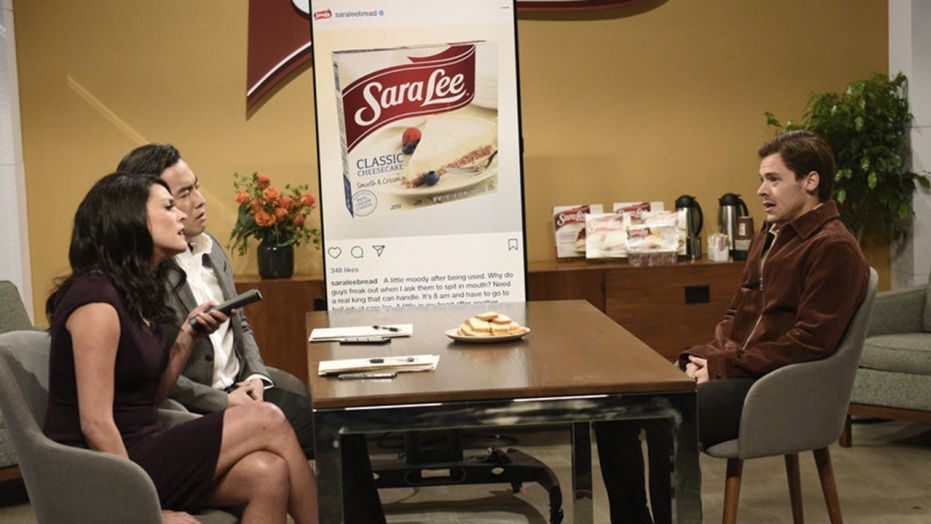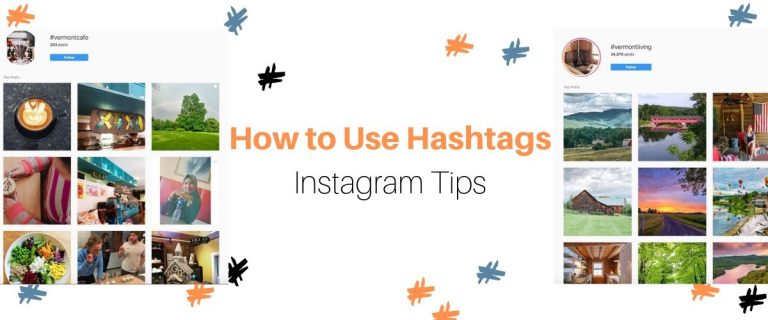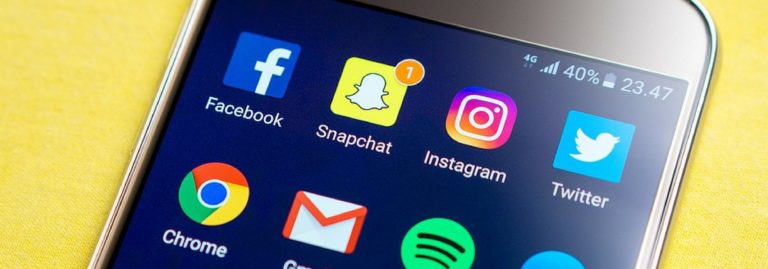This weekend, Sara Lee became the center of a cultural moment when the Bavarian cheesecake maker was the focus of a Saturday Night Live sketch featuring cast members Cecily Strong and Bowen Yang and the evening’s host and musical guest, Harry Styles. Strong and Yang portrayed Sara Lee executives scolding Styles who was playing their social media manager who had, shall we saw, gone astray from the brand voice and message. To sum it up, Sara Lee woke up to a storm of national attention online and they took it all for granted, not only ending their massive marketing moment, but potentially causing damage. Let’s dive in.
The SNL Sketch and the Sara Lee Aftermath
 In the sketch, Styles is being reprimanded for posting a series of inappropriate comments on Instagram posts from the brand account. In true internet form, this was the perfect go-ahead for both SNL and Styles fans to make their way to Sara Lee’s actual Instagram and comment an endless stream of quotes and emojis that had been featured during the SNL sketch. Social media was buzzing with screenshots of how the SNL sketch had impacted the real-world Instagram account and Sara Lee was trending for the first time probably ever.
In the sketch, Styles is being reprimanded for posting a series of inappropriate comments on Instagram posts from the brand account. In true internet form, this was the perfect go-ahead for both SNL and Styles fans to make their way to Sara Lee’s actual Instagram and comment an endless stream of quotes and emojis that had been featured during the SNL sketch. Social media was buzzing with screenshots of how the SNL sketch had impacted the real-world Instagram account and Sara Lee was trending for the first time probably ever.
Becoming a Meme
In 2019, many brands and people can find themselves rocketing to near-celebrity status once a meme takes off. We saw Ken Bone, a man who simply asked a question at a presidential debate in 2016, capitalize on the attention and build a small brand for himself including Halloween costumes and massive public support. The SNL sketch was never critiquing Sara Lee, they were actually showing Sara Lee as the innocent victim in a massive social media scandal, almost exactly the situation they found themselves in the next morning. However, by discouraging the comments, deleting the jokes, and halting all engagement, they effectively ended what could have been a huge opportunity for the company.
Brands Who Embrace the Meme
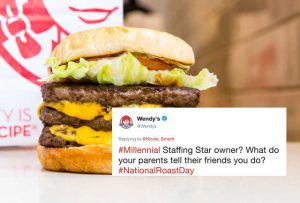 Taking on a casual and sarcastic tone online is well-worn territory by now, particularly on Twitter. Brands like Wendy’s have held National Roast Day, an annual event where they attack willing participants on everything from their looks to their products. Sara Lee may not have been comfortable embracing the inappropriate comments on their Instagram, but if they had simply let the internet have their fun, it could have led to a cult-like following that would only have benefited their engagement rates and sales.
Taking on a casual and sarcastic tone online is well-worn territory by now, particularly on Twitter. Brands like Wendy’s have held National Roast Day, an annual event where they attack willing participants on everything from their looks to their products. Sara Lee may not have been comfortable embracing the inappropriate comments on their Instagram, but if they had simply let the internet have their fun, it could have led to a cult-like following that would only have benefited their engagement rates and sales.
What to do If Your Brand Becomes a Meme
The fact that Sara Lee shut out what could have been a golden opportunity to soak up a bit of cultural attention begs the question: How do you capitalize on the meme? What could they have done differently to maintain their family-friendly image while allowing the coverage to continue benefiting them?
Just Let the Meme Happen
 This the simplest option and the route I am most shocked Sara Lee didn’t take. In their situation, they were not being attacked, they were not being blamed for any fake problems, they were simply the site where all the action was going down. Think of it like an impromptu comedy show happening right outside your store. Nobody thinks you are approving the jokes, but if a million people are going to crowd into your city it only benefits you if they happen to be close to your store. Just let it happen, let your posts get boosted, let your name travel through public discourse, and let people buy your bread to add to the meme of it all.
This the simplest option and the route I am most shocked Sara Lee didn’t take. In their situation, they were not being attacked, they were not being blamed for any fake problems, they were simply the site where all the action was going down. Think of it like an impromptu comedy show happening right outside your store. Nobody thinks you are approving the jokes, but if a million people are going to crowd into your city it only benefits you if they happen to be close to your store. Just let it happen, let your posts get boosted, let your name travel through public discourse, and let people buy your bread to add to the meme of it all.
Make a Little Reference
Now, I fully recognize that the nature of the sketch and the comments were very inappropriate, but that doesn’t mean Sara Lee didn’t have options to get in on the fun. Imagine they had tweeted, “@Harry_Styles we won’t be moving forward with your application but thank you for the interest”. The internet would have gone nuts, they would have been declared hip and fun, they would have gained followers, and people would have bumped into their actual message and their product.
The real goal of going viral, to allow potential customers as many options as possible to see your product, think about your product, and consider buying your product. They could have taken numerous routes to lightly referencing the joke to keep themselves laughing with the people. When you have the good fortune of being on the positive side of the meme, it’s not wise to flip the script which is exactly what they did.
Don’t Become the Enemy of the Meme
Other than ending a bit of fun, what did Sara Lee do to actually cause harm to their brand? By ending the ability to comment, they only increased people’s desire to troll the brand and move the joke into a more aggressive fashion. At the start, Sara Lee was viewed as an innocent victim in all of this, however, they inadvertently moved from one side of the joke to the antagonist. Now, people knew they were bothering the brand and the comments are turning more hostile.
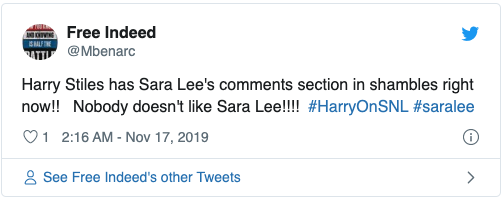 By publicly declaring that they are not in on the fun and they don’t want any part of it, they didn’t stop the comments, they only stopped the probably of their brand benefiting from it. Tweets like “Who’s adding Sara Lee to the grocery list” by Twitter user @Peyton_storm how a joke like this can benefit a brand. Was she actually going to purchase the product? Who knows, but she certainly isn’t now. They went from being the fun aunt at the Christmas party to the one swatting your hand and telling you to mind your manners.
By publicly declaring that they are not in on the fun and they don’t want any part of it, they didn’t stop the comments, they only stopped the probably of their brand benefiting from it. Tweets like “Who’s adding Sara Lee to the grocery list” by Twitter user @Peyton_storm how a joke like this can benefit a brand. Was she actually going to purchase the product? Who knows, but she certainly isn’t now. They went from being the fun aunt at the Christmas party to the one swatting your hand and telling you to mind your manners.
What to Learn from Sara Lee
The big thing to learn from this is that the internet will rarely do what you want, so it’s best to play by their rules. Social media marketing is an ever-evolving code with jokes and preferences shifting faster than light. Those who succeed are endlessly immersed in this culture and understand what will make you an enemy of the people and when you’ll be carried on their shoulders like a champion.
Let people have a bit of fun, don’t turn yourself into the bad guy, and relax. It’s important to always be aware that things that happen on social media are very different than other types of branding. It’s a place where the consumer’s voice is just as loud as yours, if not louder. Engage in the conversation rather than trying to control it.

